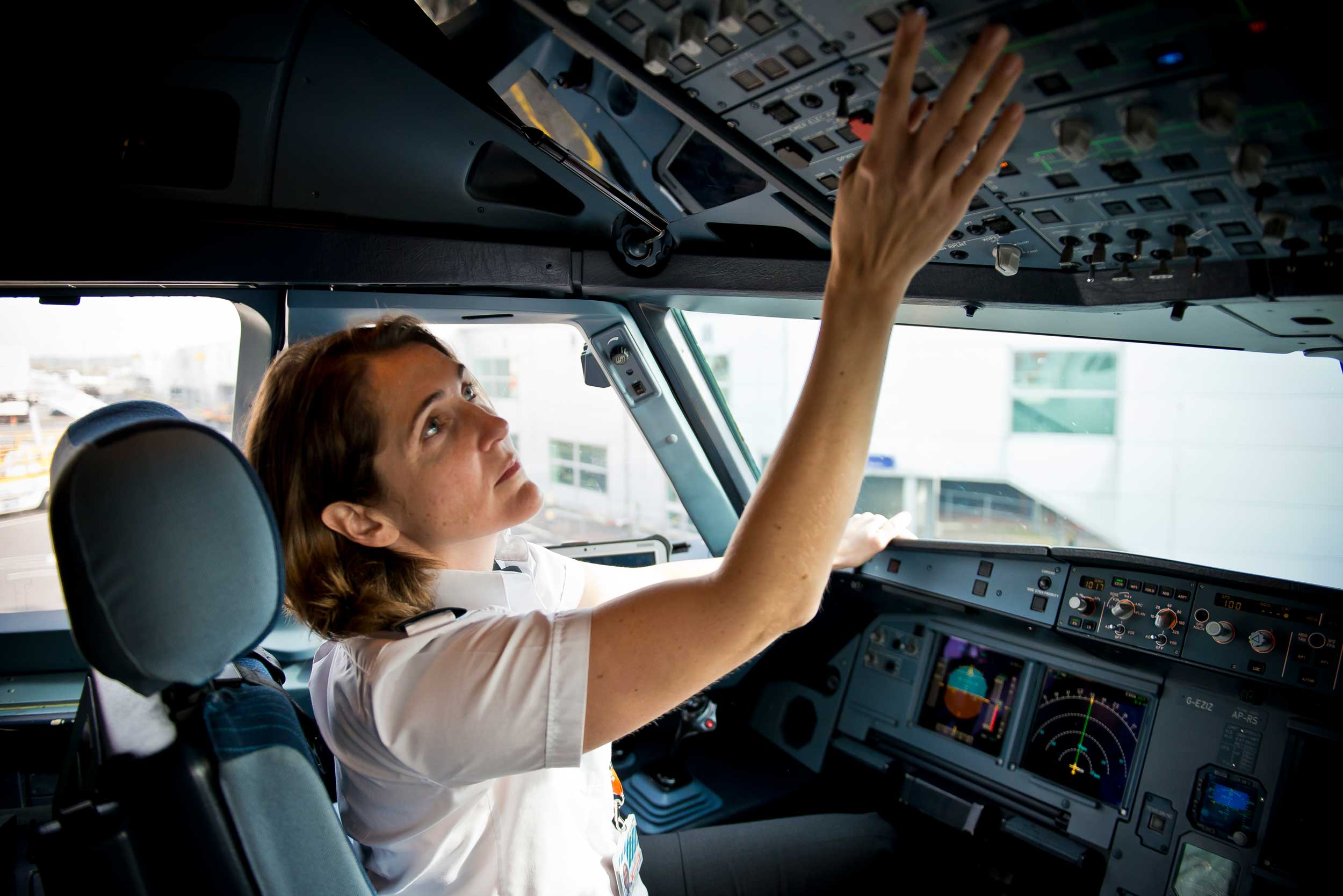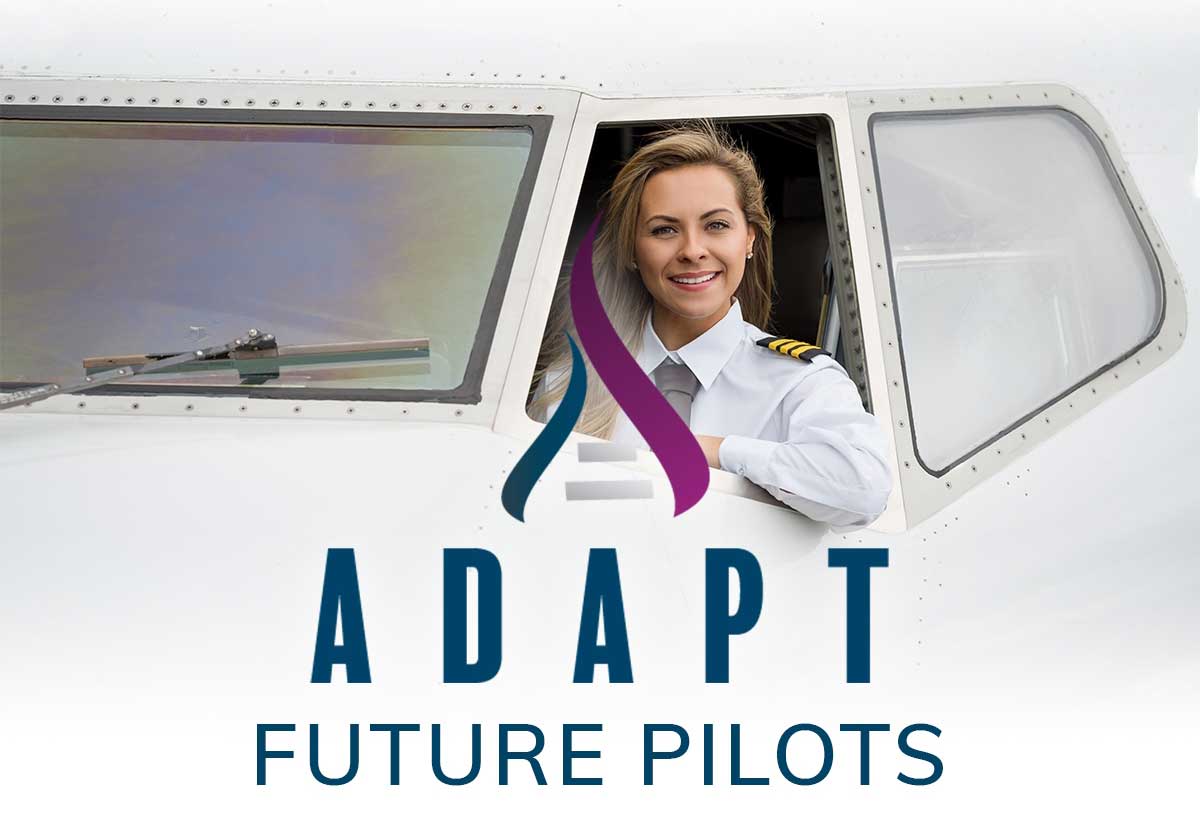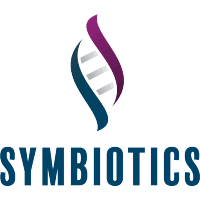
Easyjet Captain Marnie Munns preparing for another flight
PARTNER CONTENT How do I become a professional pilot? That was the question from 15-year-old Summer Carmichael who’s studying at Paisley Grammar School and, like many fifth-formers, is considering her career path.
So to help Summer and others like her, we came up with our 10-step plan to getting started:
1 Study the right subjects at school. Becoming a pilot involves maths and science so make sure your mental arithmetic and understanding of physics are up to speed.
2 Engage in other activities. Flying as a professional pilot means working with a team so you’ll need social skills. Airlines and other pilot employers are looking for well-rounded knowledgeable individuals with leadership potential.
3 Research the career. Long haul airline flying sounds wonderful but time away can be tough on family life. Understand what type of professional pilot you’d like to be – airline flying is not the only option.
4 Fly! Book a flight in a light aircraft at a local airfield. All flying schools offer these – usually an hour spent with an instructor in a two or four seat aircraft. You need to be sure you’ll like flying!
5 Pass the medical. To become a professional pilot you’ll need to pass a Class 1 Medical. Get this out of the way early because you need to know you can pass the medical before going any further. Yes, you can pass if you wear glasses, but other health issues may take time to investigate and be resolved.
6 Assessment tests. Pilot training companies – known as Approved Training Organisations (ATOs) – will want you to take some pilot assessment tests. These cover things like maths, physics, dexterity, spatial awareness, mental agility. You can prepare for the tests (see below).
7 Finance. How are you going to pay for the training? The whole training courses from start to finish will cost between £70,000 and £100,000, depending who you train with. There are some scholarships and bursaries available from various organisations – see here.
8 Research the right training route. The big decision is whether you choose an Integrated course where you train full-time for 18 months or so, or Modular where you break the training down into segments and can take up to five years. An Integrated course requires you to have the finance to pay for it available at the beginning, whereas with the Modular route you can pay in stages and work in between.
9 Research the ATOs. You’ll be spending a lot of time and money with your training organisation. You must be happy with the people, premises and methods of teaching to do your best. Make sure you understand what’s included in the price and what’s extra.
10 Start your training. It’s hard work, with lots of studying across 14 different subjects, followed by flight training. You’ll need to really knuckle down and dedicate yourself to completing the course and get the best scores to be sure of landing a good job afterwards.
But, as all pilots will tell you, once qualified you’ll have the best office in the world, working with a highly professional team, a good salary and prospects and plenty of responsibility.
Read also: Sophie’s story
The Assessment Tests

Have I got what it takes to become a pilot? It’s a question you’ll no doubt be asking yourself.
You will face pilot assessment or aptitude tests when you apply to join a course with an Approved Training Organisation (ATO). That’s to make sure you aren’t wasting your money and they aren’t taking on a lost cause.
But before you get to that stage, you can prepare and take practice tests which will help you understand areas where you need to develop.
One company offering such preparation and practice tests is Symbiotics.
Emma Akhurst is the Lead ADAPT Psychologist at Symbiotics and told us pilot aptitude tests are usually made up of a combination of knowledge tests in areas such as maths, physics and cognitive reasoning, ability tests which look to measure your dexterity, multi-tasking and coordination and control, and behaviour and preference-based questionnaires, such as those measuring personality, to understand your suitability for a particular role or organisation.
“It is really important to be as prepared as possible” said Emma. “Practice tests can help you to familarise yourself with the process and identify key development areas.”
More about Symbiotics preparation here
Meet ATOs, cadet and graduate pilots, and other pilot training companies at Pilot Careers Live this year. Book a ticket here.

